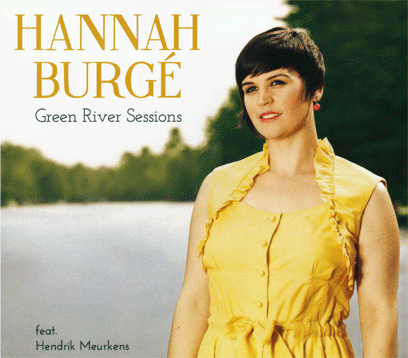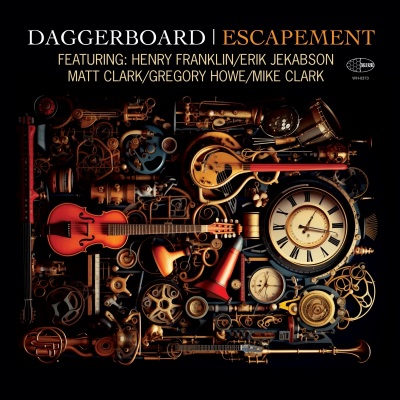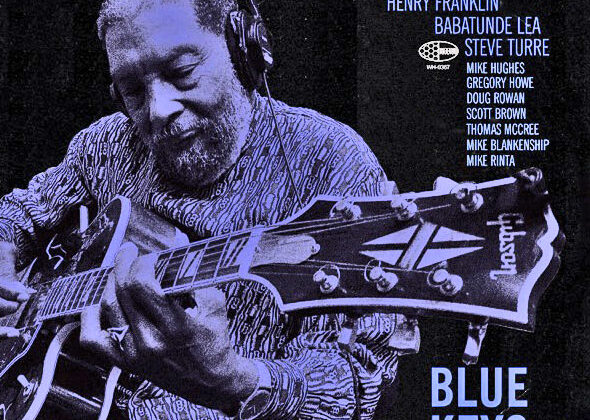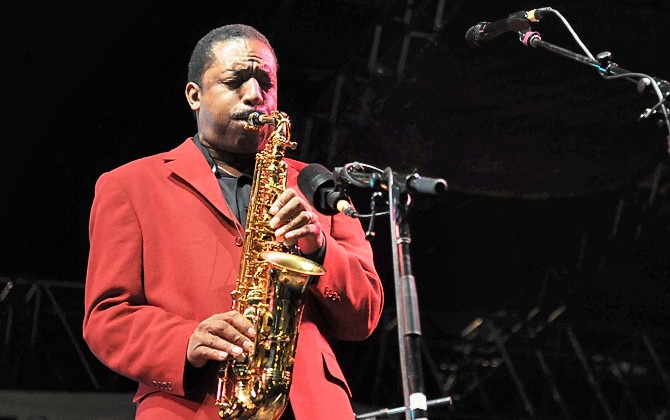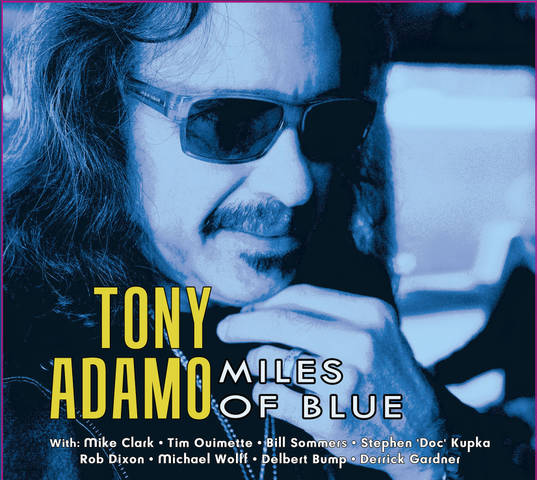“I think jazz needs to expand. It needs to continually evolve,” said producer Gregory Howe in DownBeat’s article about his determinedly independent label, San Francisco-based Wide Hive Records.
Avoiding commercialism and limitations about the boundaries of jazz, Howe has developed organically a coterie of musicians, known as the Wide Hive Players, whose rapport springs from continuing musical growth, the unlimited embrace of new ideas, and wide-ranging experiences throughout their musical journeys. Even though the group’s members have performed with numerous jazz masters and participated in world tours, they chose to live in the San Francisco Bay area, where they contribute to and build awareness of that city’s jazz scene.
For instance, iconic 83-year-old bassist Henry “The Skipper” Franklin performed on Hugh Masakela’s famous 1968 recording of “Grazing in the Grass” and on Gene Harris and the Three Sounds’s Live at the “It Club,” recorded in 1970. The legendary 77-year-old Mike Clark played drums on Herbie Hancock’s famous Headhunters jazz-funk albums, on Vince Guaraldi’s 1973 A Charlie Brown Thanksgiving, and on many more albums, such as trumpeter Eddie Henderson’s. Their remarkable musicianship is evident throughout Escapement as they shape each piece with power and restraint, providing the distinctive rhythms dictated by the compositions.
In addition to Howe’s compositions, trumpeter and flugelhorn player Erik Jekabson, another seasoned musician at the age of 51, is another creator of the uncategorizable music of expansive scope with blends unconventional modes and metrically complex world rhythms.
The result, as intended, sets up Daggerboard’s consistently unique sound, sometimes only with the core musicians of Howe, Jekabson, Franklin, keyboardist Matt Clark, and Mike Clark—and sometimes, as desired, expanding into additional colors from violins, a French horn, or congas performed by Babatunde Lea (who worked with Pharoah Sanders and Randy Weston).
Howe attributes some of the label’s investigations into odd meters or flexible instrumentation to the challenges offered by influential guitarist Larry Coryell, who recorded four albums on Wide Hive Records. That influence becomes apparent on Escapement’s first track, “Centrifugal,” played in five-four. Instead of the usual five-four syncopation of a piece like “Take Five,” “Centrifugal” spins with an underlying even eighth-note piano modal motive before Jekabson, Matt Clark, and Mike Clark solo with unassuming confidence. At 5:22, Franklin’s Mission Impossible-like vamp changes to standard quarter notes as the meter seamlessly moves into six-eight (even as the piano’s pattern seems to remain the same).
“Centrifugal” immediately segues into the title track, the rumbling of Clark’s ominous roll announcing “Escapement’s” abrupt change of mood. A brief brass pedal point emerges and swells. At :08, a seemingly ordinarily paced note comes in at one and three as if it’s the ticking of a clock. But not for long. After another instrument’s “tock” replies on two and four, more voicings join the growing blend with contrasting but complementary phrases. Eventually, it becomes apparent that this is an orchestral composition in kaleidoscopic complexities. Descending three-note lines from various musicians like Sheldon Brown’s flute are echoed with electronic enhancement by others, like from Mike Rinta’s trombone. At 1:12, the rhythmically loose cycling shifts briefly to five-four, its vamp played by Rinta (who then plays tuba at the end of the piece). All of this happens in but 2-1/3 minutes.
“Shiva’s Mode,” a raga without ornamentation that refers to Hindu’s Supreme Being, is a showcase for Brown’s haunting and sinuous clarinet work, which he plays in the instrument’s lower register. But it’s pianist Clark who infuses the piece with jazz harmonies to blend the cultures. At 5:52, drummer Clark’s short departure from the relatively peaceful Hindu mode introduces a propulsive rhythm enlivened by the piano’s jazz chords—a sudden change from Indian influences to those of Western culture.
“The Balance Board” features Jekabson in mellow form, the sweetness of his tone providing melodic content of long tones over the drums’ stirring rhythms and the horns’ harmonies. The beauty of “Return of the Pendulum’s” arrangement consists of a broad sonic spectrum, from Brown’s flute to Rinta’s tuba. Its ending establishes a two-second brass choir statement. “Olivia” is notable due to William Winart’s set-up of its mood on timpani, as well as Kasey Knudsen’s extended alto sax solo.
With references to Miles Davis’s Birth of the Cool and Oliver Nelson’s Blues and the Abstract Truth, “All Cool in the Wheelhouse” concludes this impressive album with perhaps an ironic allusion to West Coast cool jazz. Performed at a slow tempo, the composition’s four-bar harmonies blossom into broad Gil Evans-like voicings, their exquisiteness being the basis for the piece.
Daggerboard’s fearless and assured originality in Escapement, with Wide Hive’s production values, reinforce the importance of regional jazz styles and independent jazz labels.
Label’s Web Site: https://www.widehive.com





